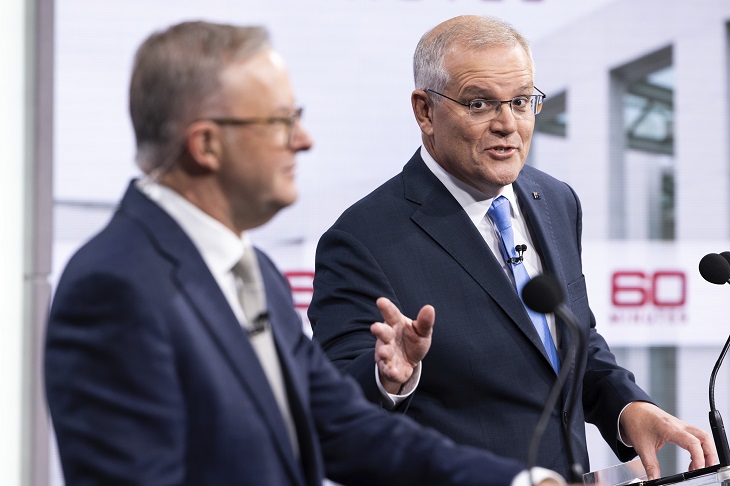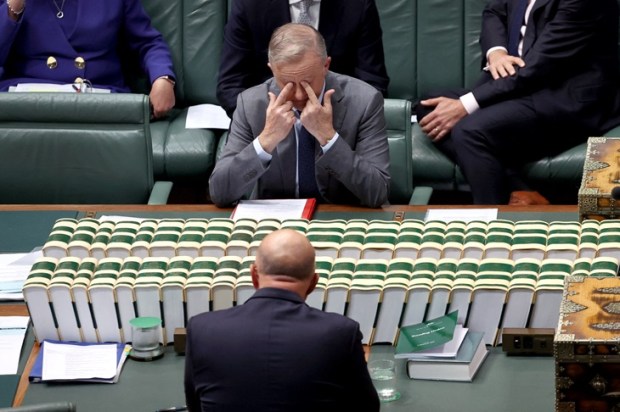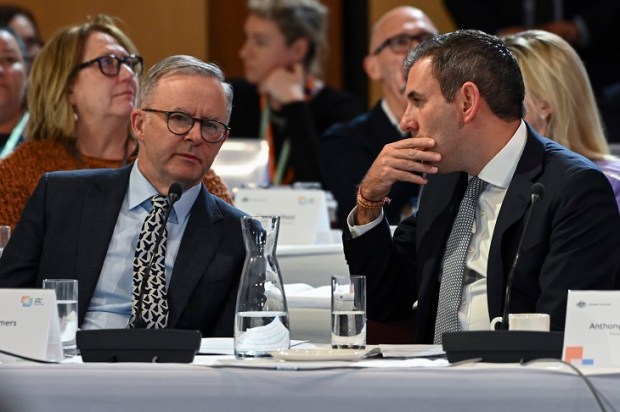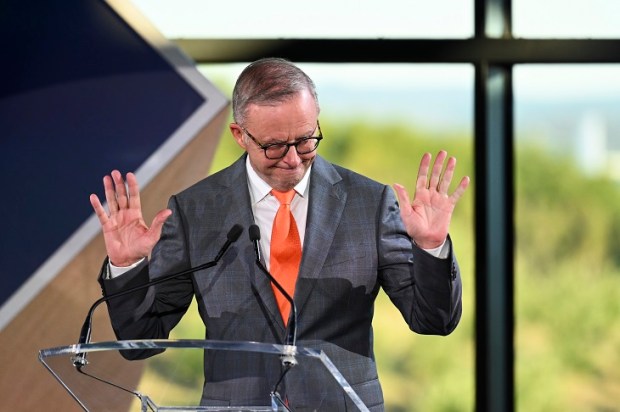Labor politicians and union representatives need a failsafe check on their emotional outbursts whenever the Liberal Party proposes changes to superannuation.
They are at risk of ending up on the wrong side of Australian workers, many of whom are members of their industry super funds.
The latest super access policy was probably conceived after observing Labor’s reflex opposition to the popular super drawdown policy unveiled during the pandemic. Labor’s response to that was also something bordering on hysterical.
Labor’s sensitivity is understandable. The creation of the super system and, specifically, industry super is a success story in some respects.
I think two stories help illustrate this.
I once flew from Sydney to Melbourne early in the morning, then returned later that afternoon. Coincidentally, on both flights, I found myself seated next to former RBA Governor and Treasury Secretary, Bernie Fraser. At that time, he was a key player in industry super.
We did not converse during the flights, but shortly after I transferred all my super balance from my Westpac-owned BT retail account to an industry fund, Australian Super.
My decision was partly informed by those domestic flights. Despite Bernie’s celebrated financial career, he travelled not in business class, but in economy.
This reflected what history shows was a very successful strategy by union-based super funds, a governance structure that insisted on low costs and, therefore, low fees for members.
In hindsight, that may seem sensible and obvious, but industry funds are non-profit entities. The strong incentive in such organisations is for management to ‘cost-pad’.
That is, when the discipline to strive for higher profits is removed, management executives tend to blow out expenses. Like taking first-class flights to conferences.
The early leaders of industry super knew high costs could bring them down, so they did something about it. And it worked from a competition perspective. They crushed the performance of retail super funds which were run by profit-seeking bankers.
The other story came from an old union mate.
He said that during one of the most bitter industrial disputes in Australian history, the 1998 waterfront confrontation between the Maritime Union of Australia (MUA) and Patrick Corporation, the main protagonists were at each other’s throats in the media every day.
The late John Coombs represented the workers, and Chris Corrigan was CEO of Patrick’s. However, even during this hostility, the two men kept their regular meeting to discuss the superannuation arrangements for the maritime workforce. On that issue, they were fully aligned.
So, there are some very nice features of Australia’s compulsory superannuation system. But that does not mean it cannot be improved, or even that it serves as strong a public interest, as is often assumed.
The best way for Labor believers to constrain their protective instincts about super is to recognise some facts and realities.
The first of which is to understand the whole thing is verging on a scam.
No other country in the world, that I am aware of, dictates to its citizens that on top of income tax, consumption tax, and other taxes, and fees for government services, citizens are in addition compulsorily required to lock away 9 per cent of their annual income for 45 years.
America has its 401,000 accounts which provide tax incentives for retirement savings, but this is a ‘voluntary’ scheme.
It is extraordinary that the Australia’s compulsory scheme has not been the subject of widespread public disobedience.
A second contextual factor is that the original public policy aim of compulsory super is not being achieved. It was designed to take pressure off government spending on the aged pension. After 30 years in existence, 70 per cent of retirees still receive an aged pension.
Worse, the primary tax advantage of super accrues to the highest income earners – but these are the very people who were never going to qualify for a pension anyway.
Thirdly, quarantined savings prohibits people from paying down housing and other debts. In aggregate, since 1992, the amount of super in Australia has grown by $3.1 trillion. At the same time, however, household debt has grown $2.5 trillion.
While younger people tend to own relatively more debt, and older people tend to own more super assets. There are many workers who have enough super for a decent deposit for something they want now, a home…
Paying down debt is also a way to reduce financial leverage, not a bad strategy in a rising interest rate environment.
By disallowing access to super, think about what Labor is saying. Individuals are then forced to pay higher super investment and management fees for up to 45 years, they are forced to pay more bank interest over 25 years, and they also pay more tax every year as super earnings are taxed at 15 per cent.
For these reasons, Labor should resist its protective instincts and realise the super system is not theirs and, every now and again, it can be changed in a sensible way.
Nick Hossack is a public policy consultant. He is former policy director at the Australian Bankers’ Association and former adviser to Prime Minister John Howard.
Got something to add? Join the discussion and comment below.
Get 10 issues for just $10
Subscribe to The Spectator Australia today for the next 10 magazine issues, plus full online access, for just $10.


























Comments
Don't miss out
Join the conversation with other Spectator Australia readers. Subscribe to leave a comment.
SUBSCRIBEAlready a subscriber? Log in